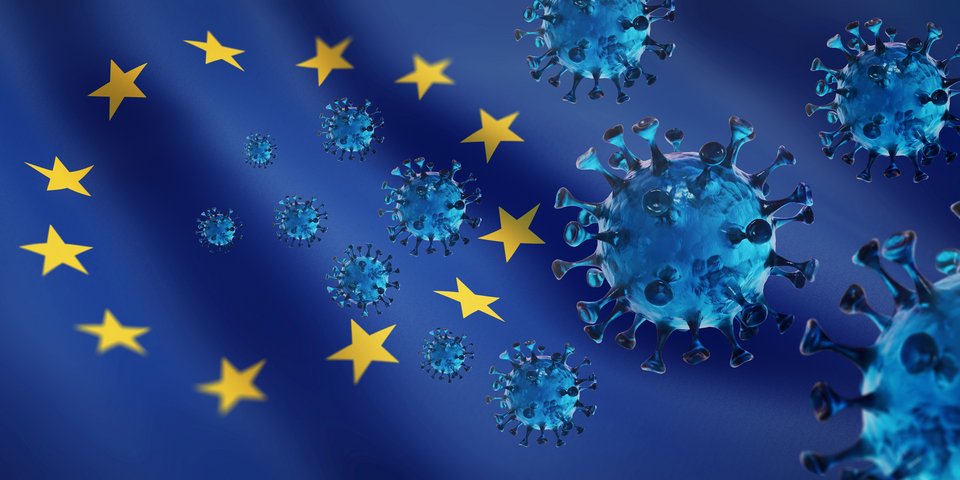 ©peterschreiber.media - stock.adobe.com
©peterschreiber.media - stock.adobe.comEven in times of crisis: Europe needs a human touch
The coronavirus knows no borders – European solidarity is what we need
IW – 03/2020
The corona pandemic is directly impacting all of us in our
daily lives. Not only on a human level, but also economically. Europe had
initially underestimated this unknown threat. As recently as January 2020,
China was still considered the epicenter of the corona virus and the COVID-19 respiratory disease. A
short time later it was in Europe. The new pathogen, for which there is still
no drug or vaccine, has spread worldwide at breathtaking speed.
With the number of cases and deaths rising daily, many countries have put in place severe restrictions on economic
activity and daily life. The aim is to slow down the spread of this invisible threat and prevent health
systems from collapsing. Six
months ago, it would have almost been impossible
to imagine schools, shops and restaurants closing, quarantines and travel restrictions being imposed, social contact being banned, and lockdowns being put in place.
However, we have also seen that the way each EU Member
State has handled the epidemic is very different.
On the one hand, this is understandable, because there is a lot at stake and it is not easy to find the right balance: human health
and lives, the survival of entire economies and fundamental civil liberties. On the
other hand, the end result seems to many to be a hodgepodge of measures that were not
always well communicated. A lack of
coordination over border closures and controls and the question of what level of internal (and external!) European
solidarity can be
achieved in the event of a crisis without jeopardising the provision
of services to EU citizens has caused
concern for many Europeans.
At least people have been learning from each other
quickly, albeit not quick
enough, as it has turned
out.
Although the EU has limited resources and infrastructure when it comes to health and internal security
policy, greater European solidarity is now the order of the day. It is
important that the Member States help each other. The many examples of support show that we are now back on the right path. Medical supplies have been
sent to countries particularly affected by the Corona pandemic, and countries
such as Germany, Luxembourg and Switzerland have received and treated COVID-19
patients from Italy and France in their own hospitals. Czechia has sent
protective suits to Italy and Spain.
However, solidarity must not be limited to managing
shortages across borders when it is already too late. Rather, we must look to
the future and do everything possible to avoid a repeat of the dramatic events
we are experiencing today by expanding the necessary research and treatment
capacities, as well as (emergency) infrastructures. This may well be a huge European project to which everyone will have to contribute.
The coronavirus does not stop at national borders, or the borders of Europe. No
region will be able to meet the challenges we face around the world on its own. That is why the World Health
Organisation will have to play a far greater role in the future. This is just the beginning.
As far as the EU’s contribution is concerned, the European Commission has managed to standardise
the response to coronavirus and has introduced various measures. In order to
ease the critical supply shortage of personal protective equipment for the foreseeable future, the European
Commission began to purchase protective masks as early as February.
Meanwhile, the additional supplies needed will are also being procured
centrally on behalf of the Member States. 90% of the purchase costs for tests, ventilators and
protective equipment will be financed by the EU, and currently manufacturers seem to be able to meet the demand for
masks and safety
glasses.
The Corona pandemic has completely changed the world from
one day to the next. No one could have imagined such a state of emergency in public services. In the current crisis, and the even more serious and protracted one that is
still to come, it is more important than ever to pull together and
develop approaches for not only
Europe but also possibly the entire globe.
Commentary
by Ilka Wölfle, Director of the European Representation of the German Social Insurance
